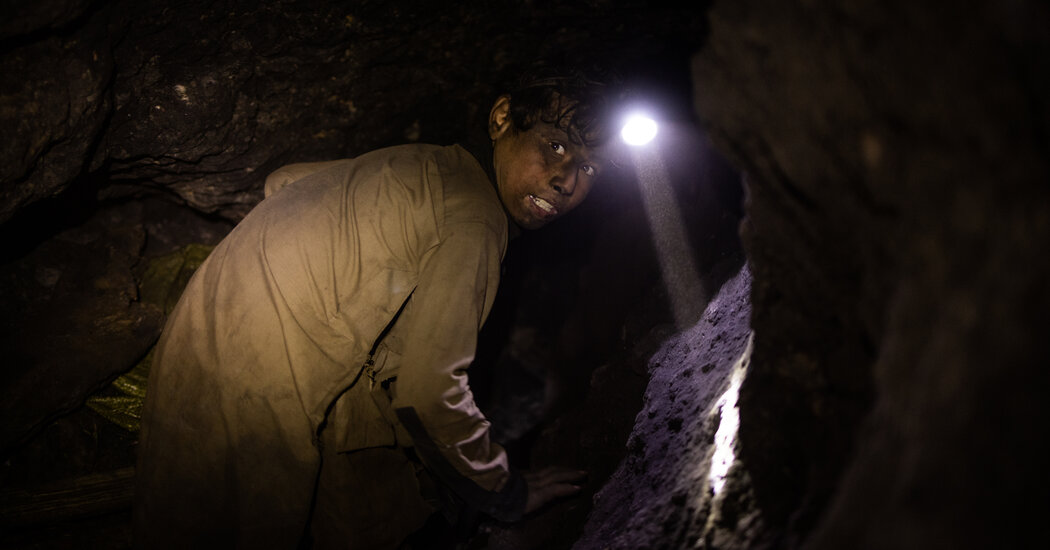Within the three years since Russia invaded Ukraine, near-daily heavy drone strikes and missile bombardments have killed hundreds of civilians and displaced many extra. Along with the lack of life and large-scale harm to civilian infrastructure, Russia has focused many worthwhile Ukrainian cultural and pure heritage websites.
Now, Donald Trump’s presidency poses new challenges for Ukraine, suggesting a pivot away from preservation efforts supported by the Biden administration, just like the State Division’s Ukraine Cultural Heritage Response Initiative.
At the very least 476 landmarks have sustained harm since February 2022, together with archaeological and spiritual websites, buildings of historic or creative significance, museums, monuments, libraries, and archives, in keeping with an inventory printed by UNESCO final month. These websites embrace the Kyiv Instructor’s Home, additionally included within the World Monument Fund’s (WMF) 2025 watch checklist of threatened cultural heritage.
A historic image of Ukrainian independence, the previous parliament constructing noticed its doorways, home windows, and glass-paneled dome broken by a rocket blast in October 2022. The WMF, supported by the US State Division Ambassadors Fund for Cultural Preservation and Kyiv Metropolis Administration, accomplished repairs on the constructing final yr, together with changing the shattered dome glass.
The shattered glass roof of the Kyiv Instructor’s Home after 2022 rocket fireplace (picture courtesy World Monument Fund)
“History and culture are paying a heavy toll for the war and it is no coincidence that they are being attacked, because it is Ukraine’s very identity and nature that are being attacked through them,” Ukraine’s Minister of Tradition and Strategic Communications Mykola Tochytskyi mentioned in an October meeting assembly for the Council of Europe. Tochytskyi emphasised that the widespread wreckage of Ukrainian tradition is a part of Russia’s systematic plan to “rewrite history.”
Regardless of the efforts of organizations like WMF, Trump’s lately imposed federal funding freeze has left the way forward for important applications unsure. That is true for the Ukrainian Heritage Digitization and Dissemination Initiative (UHDDI) which goals to protect Ukrainian cultural artifacts by digitizing collections akin to these of the Odessa Archaeological Museum.
Launched by the nonprofits CyArk and Archaic in 2023, the initiative is supported by the US Embassy Fund Program. It at the moment consists of a crew of just about 20 individuals who work across the clock to safeguard Ukrainian heritage, Simon Radchenko, Archaic co-founder and UHDDI undertaking coordinator, instructed Hyperallergic.

Looted museum halls on the Kherson Regional Museum amid the Russian invasion of Ukraine in December 2022 (picture by Dimitar Dilkoff/AFP through Getty Pictures)
Radchenko mentioned that UHDDI “largely depends on the US interest to keep it going” and that Archaic is at the moment open to collaborating with different worldwide establishments.
Different Ukrainian heritage preservation applications additionally stay in limbo, just like the State Division-funded Battle Observatory Ukraine, which has been documenting the affect of Russia’s warfare on Ukrainian cultural and pure heritage. In this system’s first part, Senior Investigator Kate Harrell instructed Hyperallergic that researchers documented a pattern of intentional Russian actions aimed toward erasing Ukrainian tradition (an assimilation course of identified by historians as “Russification”). Harrell mentioned that the actions the researchers have recorded included crackdowns on spiritual freedom, the looting of the Kherson Museum, and trafficking of antiquities and pure sources to Russia. Different examples of Russification have included classifying Ukranian artists as Russian.

Researcher Daria Hemberzhevska digitizing antiquities on the Odessa Archaeological Museum (picture courtesy Simon Radchenko of Archaic)
The following part of this system is meant to deal with preservation and dissemination, however final month, this system’s web site went darkish, slicing off entry to the report hub and database for investigators.
A State Division spokesperson instructed Hyperallergic that the division is “currently conducting a strategic review of all State Department activities to ensure they are efficient and consistent with the America First agenda.”
“Some program and initiative activities, projects, and planned travel are affected by this strategic review, which remains in progress,” the spokesperson mentioned.
These developments come as worldwide officers specific alarm over President Trump’s feedback a couple of potential peace settlement, which appeared to middle Russia’s pursuits to the detriment of Ukraine’s participation in what was broadly criticized as a stunning diplomatic pivot.
However whereas federal applications have been halted amid the funding freeze, the studies of atrocities haven’t stopped, famous Fiona Greenland, a senior investigator for the Battle Observatory Ukraine.
“The current administration’s actions to date point to a significant de-prioritization of investigating alleged atrocities in Russia’s full-scale invasion,” Greenland instructed Hyperallergic.
“If we don’t document the impacts of this war on Ukrainian culture and communities, we risk losing not only valuable information, but also the ability to tell the full story of what happened,” Greenland continued.

A photograph taken on December 22, 2022, exhibits a damaged glass field within the looted museum halls on the Kherson Regional Museum. (picture by Dimitar Dilkoff/AFP through Getty Pictures)
The cultural heritage work of nongovernmental organizations and civil society teams like WMF and the Ukrainian Institute of America (UIA), which focuses on selling and preserving Ukrainian arts and tradition, have gotten more and more crucial.
“The reduction of US support for cultural preservation initiatives threatens not only physical monuments and artifacts but also broader efforts to safeguard Ukraine’s cultural legacy for future generations,” Lydia Zaininger, government director of UIA, instructed Hyperallergic.
At present, February 27, WMF CEO Bénédicte de Montlaur is touring to the capitol to have in-person conversations with companions on the State Division concerning the group’s federal grants that help its cultural preservation and conservation work.
“In any case, we will need support from other institutions and donors to continue our work in Ukraine,” a WMF spokesperson instructed Hyperallergic.
As nongovernmental organizations proceed to pursue this work, Greenland famous, the federal funding freeze “sends a chilling message” to Ukraine and different battle zones that “protecting art, religious freedom, literature, architecture, and historic sites are no longer in US interests.”




